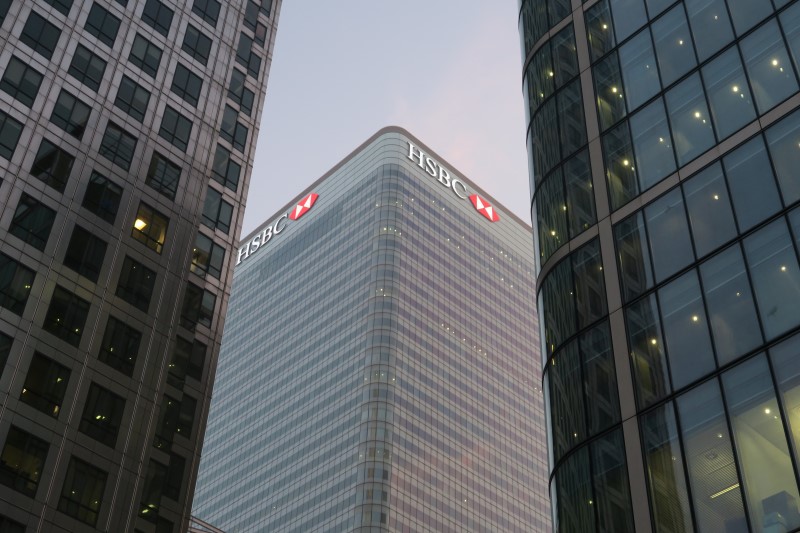(Bloomberg Opinion) -- HSBC Holdings (LON:HSBA) Plc is making a promise: Cost control is coming without layoffs.
The pledge – laid out Tuesday by Chief Executive Officer John Flint – may seem like wishful thinking, given the lengthening list of challenges to the bank’s revenue growth.
For investors, it means HSBC will have to gin up growth faster than last year’s 5 percent gain, slow investing or cut costs. One place to start would be employee bonuses. A hiring freeze now seems unavoidable, with 235,000 full and part-time employees at the end of December, up from 229,000 the previous year.
On Tuesday, HSBC posted a 1 percent drop in adjusted pretax profit of $3.39 billion for the three months ended Dec. 31, missing the $4.4 billion consensus. Against the backdrop of Brexit and escalating tariff threats, the bank also struggled with a slowdown in securities trading like its peers, according to Bloomberg Intelligence analyst Jonathan Tyce. Even insurance sales slumped, an embarrassing result for a lender chaired by AIA Group Ltd. and Prudential (LON:PRU) Plc veteran Mark Tucker.
The results were the first annual numbers delivered by Flint and CFO Ewen Stevenson, who was poached from Royal Bank of Scotland (LON:RBS) to replace Iain Mackay in December.
Over the past year, HSBC’s stock has underperformed the broader market: Cost control is one of the few areas that can turn things around. The bank has its work cut out. Jaws, which measures growth of revenue versus costs, unexpectedly fell to negative 1.2 percent, compared with negative 1 percent a year earlier. Stevenson has promised this year will be positive.
In an interview with Bloomberg TV on Tuesday, the executive said the company has already slowed headcount growth. Meanwhile, the other plans to rein in spending are underway. In June, Flint said the bank planned to lay out as much as $17 billion to expand its key Asian markets and improve technology, with plans to spend roughly two-thirds of that by 2020. The bank will be hard-pressed to meet that goal and keep costs down.
And for all the talk of HSBC's commitment to return capital to shareholders, it didn't announce a new buyback program. Such largess is unlikely to be repeated anytime soon.
Challenges also persist on the revenue side. In its core market of Hong Kong, which accounted for 31 percent of revenue last year, competition is steepening. Virtual banks are expected to gain traction in the city, where HSBC dominates. Late Monday, a Beijing released a blueprint tying the former British colony closer to Macau and nine other Chinese cities – the so-called Greater Bay Area. Its proposal to establish an international commercial bank in Guangdong presents a challenge to the very acronym HSBC represents.
To be fair, the bank still managed to post decent results in Hong Kong. Revenue from the city rose 14 percent to $18.2 billion in 2018 from $16 billion a year earlier. Even the real-estate market, which saw a mini-rout at the end of last year, hasn’t suffered too much: Mortgage loans rose by $3 billion in the city, while lending overall climbed $6 billion.
Despite hitching its star to Chinese expansion in 2015, it’s the turmoil closer to home that most worries the top brass at the London-based bank: “We’re more concerned about the U.K. than Hong Kong or China,” Stevenson said. For a company founded more than 150 years ago to finance international trade, it’s no small irony that the bank’s biggest headaches include the trade war, Brexit and China’s Greater Bay Area.
